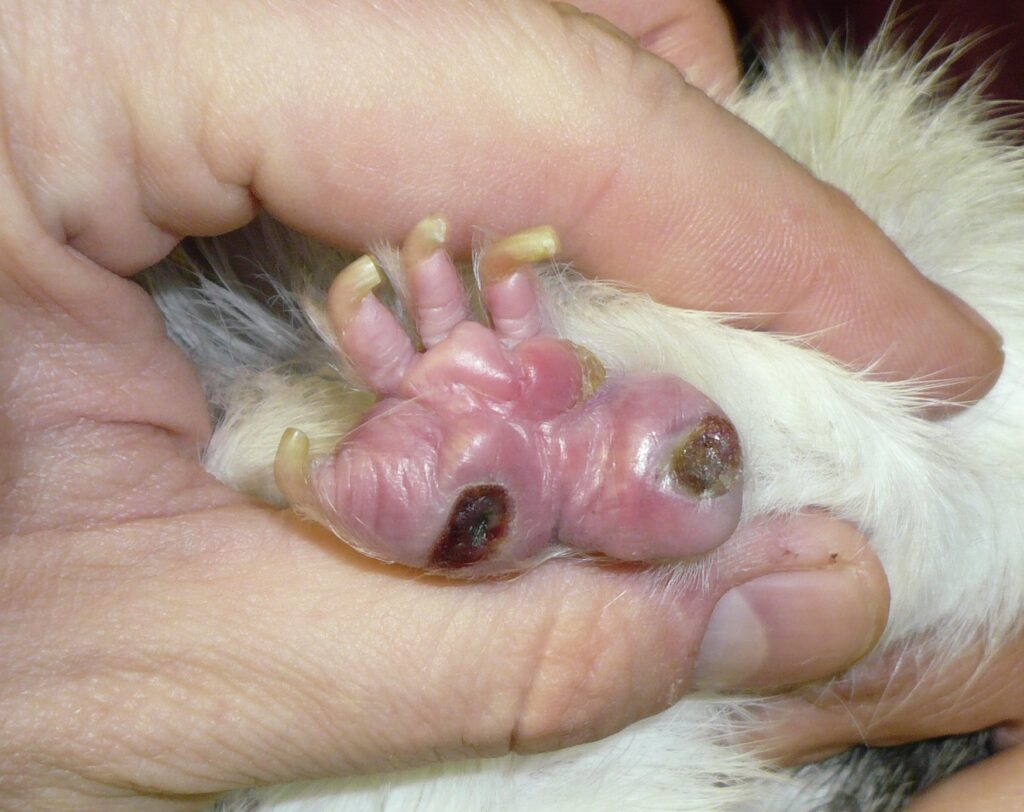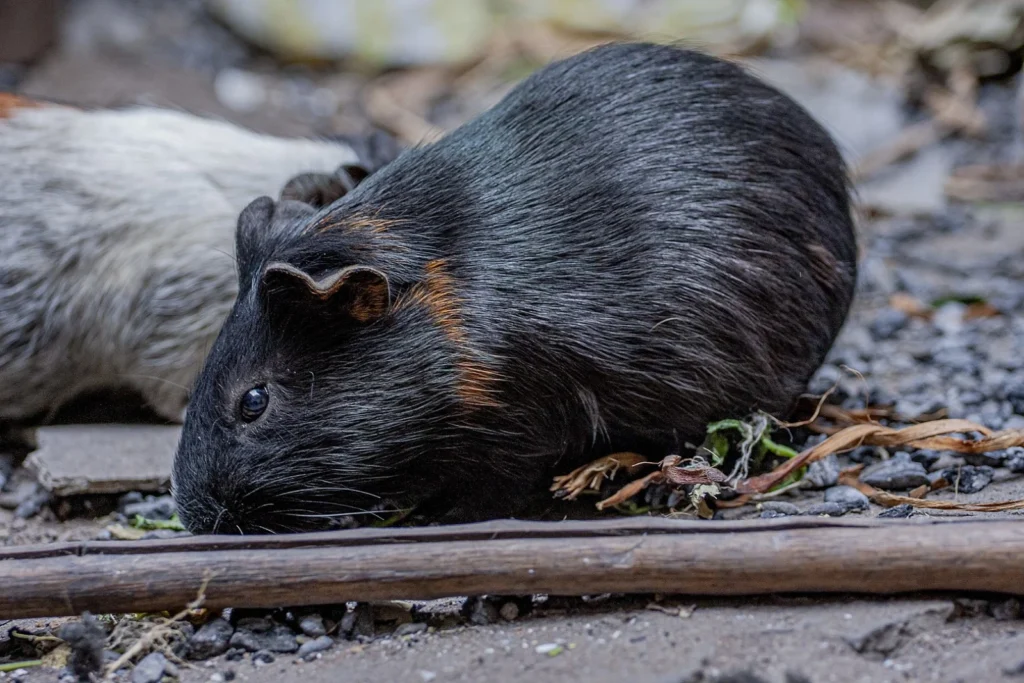Guinea pigs, those popular and friendly small pets, have a crucial dietary need that’s often overlooked but vital for their health and survival: Vitamin C. Just like humans, guinea pigs cannot synthesize their own Vitamin C (ascorbic acid), meaning they must obtain this essential nutrient through their diet. Understanding why they have this inability and the severe consequences of its deficiency is paramount for any guinea pig owner.
Vitamin C Synthesis Disability: A Genetic Cause
Certain species, including humans, some primates, and guinea pigs, lack a specific enzyme called L-gulonolactone oxidase (GLO). This enzyme is critical for the final step of Vitamin C synthesis from glucose. Evolutionarily, these species likely developed in environments abundant with Vitamin C-rich foods, allowing them to survive despite losing the ability to produce it internally. However, in modern environments, especially for domesticated guinea pigs, this genetic disability presents a significant health risk.

The Importance of Vitamin C: Why It’s Essential
Vitamin C participates in several vital biological processes within a guinea pig’s body. Its primary functions include:
Collagen Production:
Vitamin C is indispensable for collagen synthesis. Collagen is a major protein crucial for forming connective tissue, skin, bones, cartilage, teeth, and blood vessels. Without adequate Vitamin C, collagen production is impaired, leading to weakness and deterioration in various body parts.
Immune System Boost:
As a powerful antioxidant, Vitamin C strengthens the immune system, enhancing the effectiveness of white blood cells and helping the body fight off infections and diseases. Without sufficient Vitamin C, guinea pigs become easily susceptible to illness.
Iron Absorption:
Vitamin C facilitates the absorption of non-heme iron from plant-based sources. Iron is important for hemoglobin production, which transports oxygen throughout the body. A lack of iron can lead to anemia.
Antioxidant Protection:
It safeguards body cells from the damaging effects of free radicals, which are unstable molecules that cause cellular damage and contribute to various diseases.
Vitamin C Deficiency: Scurvy and Other Complications
If guinea pigs do not receive enough Vitamin C, they develop scurvy, a severe and painful condition that can be fatal if left untreated. Common signs of scurvy in guinea pigs include:
Weakness and Lethargy:
Guinea pigs become dull, less active, and their overall activity decreases.
Joint and Bone Pain:
Impaired collagen production weakens joints and bones, making it difficult for guinea pigs to walk or move. They may limp, refuse to move, or exhibit swollen joints.
Internal Bleeding:
Blood vessels can become fragile, leading to bleeding under the skin, in the joints, or in the gums. Swelling and bleeding are common symptoms.

Delayed Wound Healing: Due to the lack of collagen, wounds do not heal easily.
Rough Coat and Skin: Their fur becomes coarse and dry, and their skin may become weak.
Loss of Appetite and Weight Loss: Guinea pigs may stop eating due to pain and illness, resulting in weight loss.
Dental Issues: Teeth can weaken, and gum problems may arise.
Increased Infections: Due to a weakened immune system, guinea pigs are more prone to respiratory infections and other diseases.
Diarrhea: Digestive problems can frequently occur.
These symptoms typically begin to appear within 2-5 weeks of Vitamin C deficiency.
Vitamin C Supply:
How to Ensure It
Guinea pigs generally require about 10-30 mg of Vitamin C daily. This demand can be higher for sick, pregnant, or nursing guinea pigs. It’s crucial to take specific steps to meet this requirement:
Fresh Fruits and Vegetables:
This is the best source of Vitamin C. Guinea pigs should be given fresh, Vitamin C-rich fruits and vegetables daily. These include:
Bell Peppers: Especially red and yellow bell peppers are excellent sources of Vitamin C.
Broccoli: Can be given in small amounts.
Parsley: Rich in Vitamin C.
Spinach (in small quantities): Due to high oxalate content, it should be given sparingly.
Coriander leaves, mint leaves.
Oranges, strawberries, kiwi (very small amounts due to sugar content).
Vitamin C Supplements:
If adequate Vitamin C cannot be confirmed through diet, Vitamin C supplements can be used under veterinary advice. Tablet or liquid supplements can be given directly to the guinea pig or mixed with their drinking water. However, mixing in water can alter the taste, and Vitamin C can lose potency faster. Direct administration is generally preferred.
Guinea Pig-Specific Pellets:
Good quality guinea pig foods are usually fortified with Vitamin C. However, this Vitamin C can degrade over time and with exposure to light. Therefore, it’s essential to always use fresh pellets and store them properly.

Important Considerations:
Never feed guinea pigs dog or cat food, as these do not contain the necessary nutrients for them.
Fruit juices contain excessive sugar and should be avoided.
The Vitamin C content varies in different vegetables. Offer a variety of vegetables daily.
Excessive levels of Vitamin C are usually not harmful as it is a water-soluble vitamin that is easily excreted from the body. However, always consult a veterinarian before giving high-dose supplements.
In conclusion, Vitamin C is not merely an extra nutrient for guinea pigs; it is absolutely essential for their survival. It is every guinea pig owner’s responsibility to understand this genetic inability and ensure adequate Vitamin C in their pet’s diet. With the right diet and necessary supplements, we can ensure our furry friends lead healthy, active, and long lives. Awareness about the importance of Vitamin C in Guinea Pigs is the first and most critical step in maintaining their well-being.


2 thoughts on “Vitamin C in Guinea Pigs: Why It’s Must !”